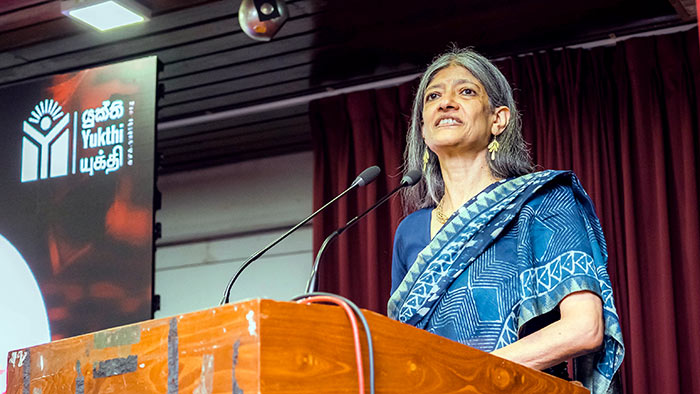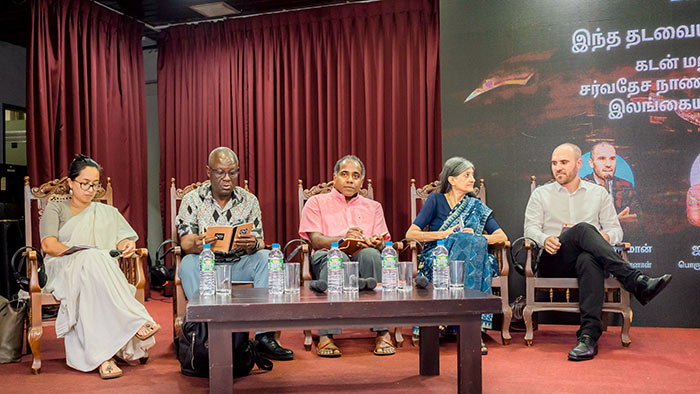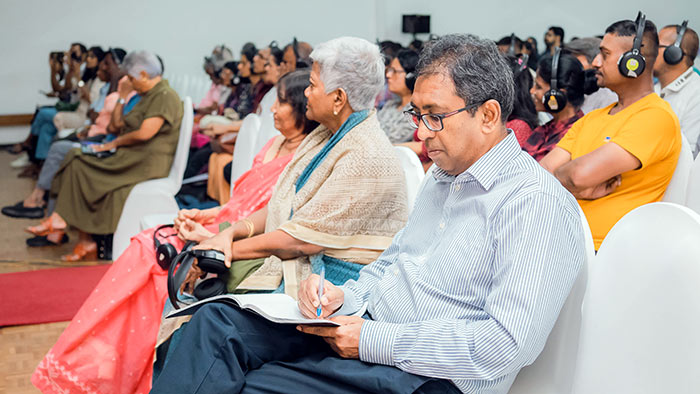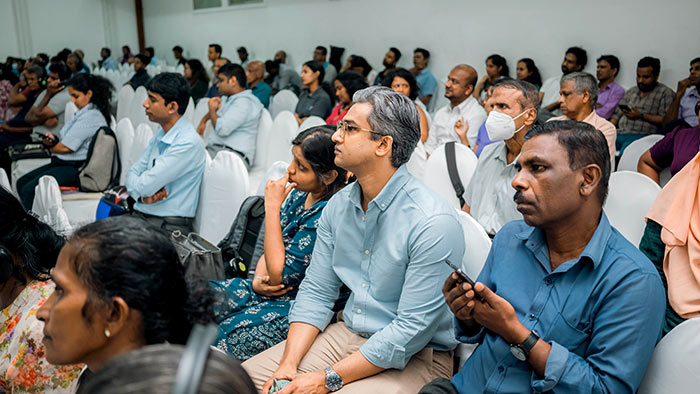Is There Another Way? Debt Restructuring, IMF and Future of Sri Lanka

Professor Jayati Ghosh
On June 10, the Sri Lanka Foundation Institute hosted a significant seminar titled, “Is There Another Way? Debt Restructuring, IMF and the Future of Sri Lanka,” featuring distinguished international experts who shared their experiences and insights on debt restructuring and negotiations with the International Monetary Fund (IMF).
The event, organized by the YUKTHI Collective – a platform of activists and academics supporting democratic and justice struggles – saw presentations by Professor Martín Guzmán, former Minister of Economy of Argentina and current faculty at Columbia University; Professor Jayati Ghosh, economist at the University of Massachusetts, Amherst and co-founder of the International Development Economics Associates (IDEAs); and Charles Abugre, Executive Director of IDEAs.
Drawing from Argentina’s extensive experience with debt crises, Professor Guzmán discussed the critical elements of debt restructuring.
He highlighted Argentina’s 2020 debt restructuring, the second largest in history, which resulted in a 55% reduction in sovereign bond debt. Guzmán underscored the importance of countries conducting their own debt sustainability analysis to challenge the IMF’s assessments and stressed the necessity of having clear national policies to enhance bargaining power in negotiations.
Charles Abugre drew parallels between Ghana’s and Sri Lanka’s economic situations, noting that both countries are in their 17th IMF agreement following defaults on international sovereign bonds.
He criticized the IMF for not being impartial, emphasizing that its advice often favors private capital. Abugre urged Sri Lanka to prioritize its national development agenda over IMF conditionalities.
Professor Ghosh provided a global perspective, highlighting the IMF’s role in encouraging Sri Lanka to borrow from international capital markets and issue sovereign bonds. She argued that the high returns on these bonds should influence the determination of debt haircuts.
Ghosh also emphasized the disproportionate impact of IMF-imposed economic reforms on ordinary people, particularly women, and advocated for international coordination among debtor countries to resist IMF pressures and seek fairer solutions.
The seminar underscored the complexities of debt restructuring and the need for strategic, independent approaches by debtor countries. It called for a reevaluation of the IMF’s role and a focus on protecting vulnerable populations from the adverse effects of economic reforms.



Latest Headlines in Sri Lanka
- Sri Lanka President orders 4-day action plan to resolve port delays January 13, 2025
- Vehicle import taxes may rise up to 600%, warns VIASL January 13, 2025
- Duminda Silva transferred to Colombo National Hospital January 12, 2025
- Sri Lanka announces new import tax rates for vehicles effective February 2025 January 12, 2025
- Sri Lankan President Anura Kumara Dissanayake to undertake state visit to China January 11, 2025


